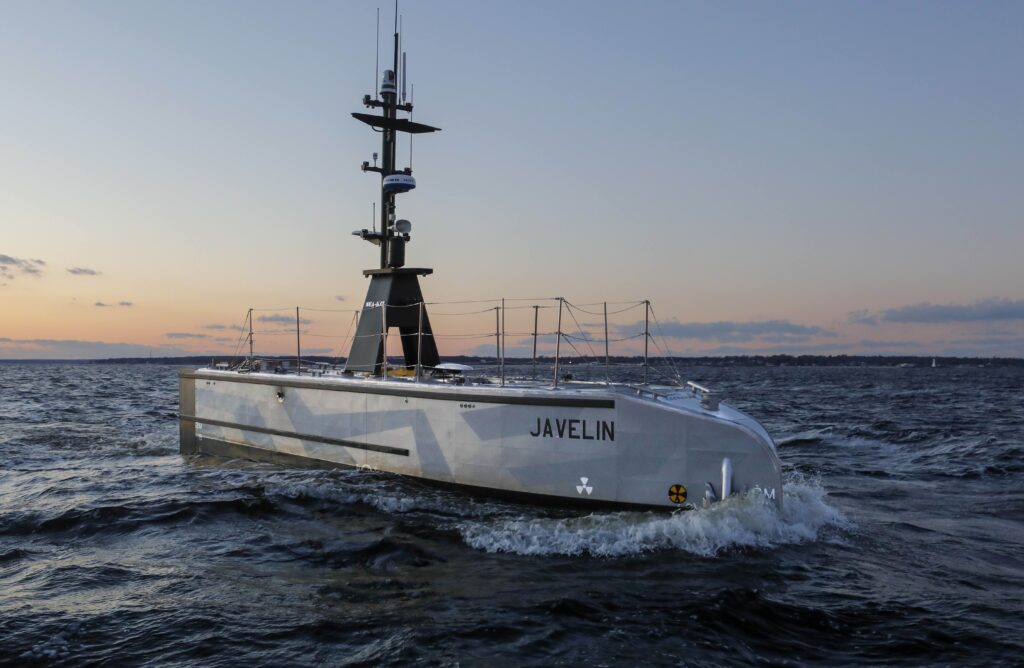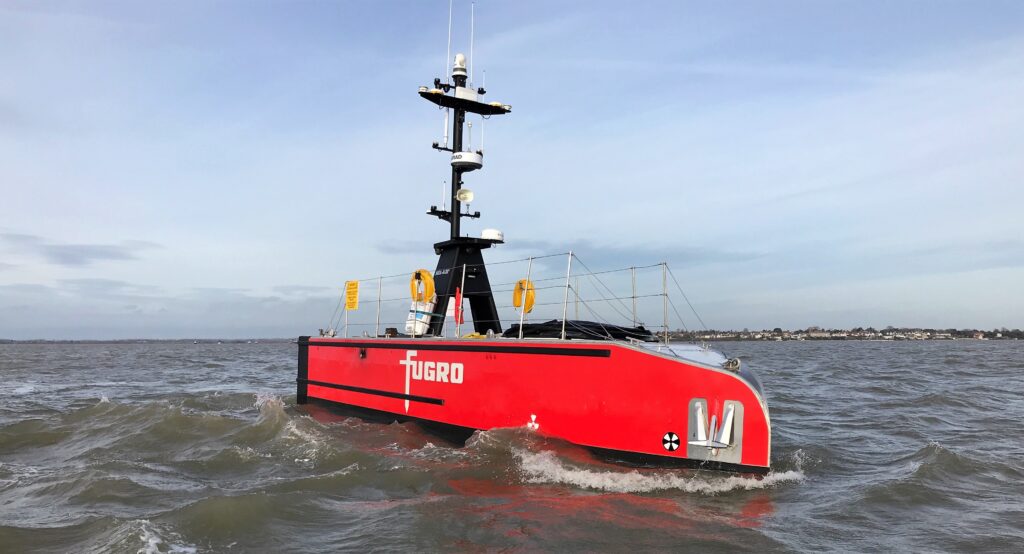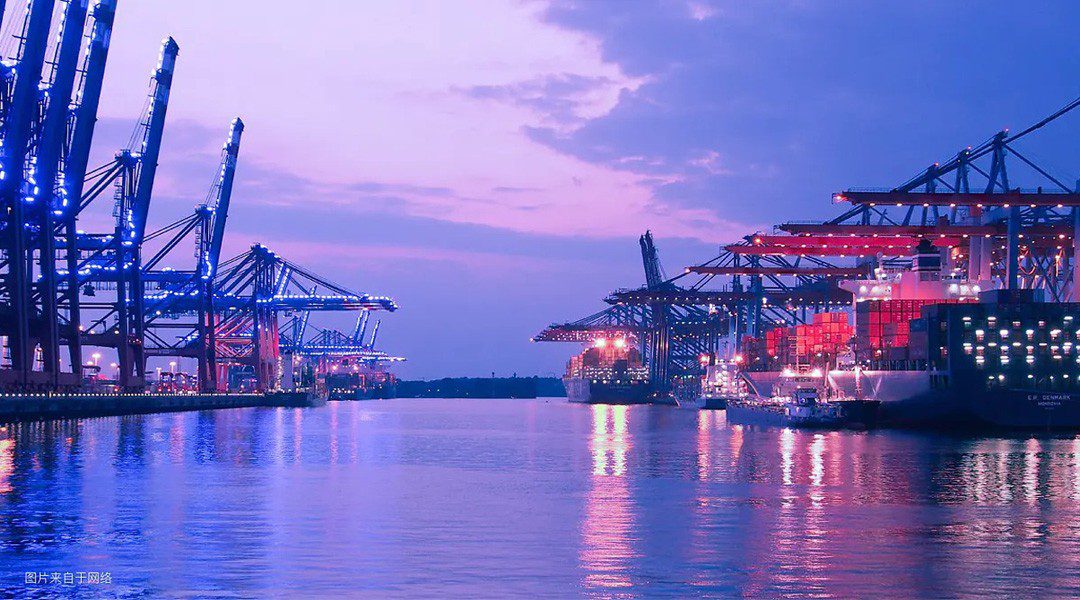In 2021, Uncrewed Surface Vessel (USV) designer and builder, Sea-Kit International, was awarded the first ever Unmanned Marine Systems (UMS) certificate by Lloyd’s Register, representing a key milestone for the maritime industry. Certification is essential for the industry to provide a safety assurance framework.
Since then, it says it’s received the most UMS certificates awarded to any company, and continues to push boundaries with the design and construction of USVs.
But are they safe? According to Ash Skett, director of operations pictured above, the answer’s a definite yes: “thanks to multiple layers of redundancy, onboard-safety systems which are human-monitored, and automated behaviours upon loss of comms.”
Skett continues: “Keeping within the boundaries of an ever-changing compliance landscape has been one of the biggest challenges. Sea-Kit’s design was on the market before legislation was even drafted, so staying ahead of requirements issued by the Maritime and Coastguard Agency, and others, to ensure that our vessels are allowed to operate has taken significant time and resources.”
But that complexity and length of design have reaped rewards. Now, says Skett, “Our USV’s agnostic capabilities, coupled with its ability to operate alone, over the horizon, are the most valuable features of our vessel designs. The capability for remotely operated vehicle /or autonomous underwater vehicle launch and recovery is unmatched in the industry to date.”
The journey there has had its ups, downs and curves. He says the biggest surprise in the early days was “probably how difficult it is to manage traditional ships’ systems remotely. There has been a lot of development in recent years, but initially there was great challenges in source equipment which was fully adaptable to be used through a data link. The first version of our vessel control system, G-Savi, was developed because there was nothing on the market that was able to seamlessly interact with onboard systems.”

UMS do not make navigational decisions
Sea-Kit’s vessels are remotely controlled and do not make navigational decisions themselves. The human operator is the primary safety feature, explains Skett. That brings its own challenges.
He believes training and familiarisation of the operator is key. “Inability to react properly to navigational hazards given the remote /offset helm position and inability to monitor all appropriate situational awareness systems due to not knowing where to look” are safety considerations. That’s mitigated with the detailed technical and training material produced. “OEM training is provided upon delivery of vessels and the vessel operator personnel are involved throughout build and sea-trial phase, to allow them to learn from real world operations.”
And when the UMS is ready for operation, “navigational and onboard alarms are neatly displayed and transmitted to the operator in a clear and concise manner,” says Skett, “drawing their attention to the areas of highest concern without overloading them with information.”
Since the company’s inception, Sea-Kit has looked at worse case scenarios and mitigated against them.
Skett cites situational awareness as among the top safety considerations, as in, understanding what would happen if communication was lost, the way the vessel would behave in that situation.
“Loss of comms behaviours are developed and regularly tested,” Skett explains. “Additional comms loss behaviours have been developed, such as an auto-stop when an imminent collision is detected.” He says the system has developed into a “tried and tested design, operated in the real world with robust feedback loops from vessel operators, coupled with an agility to adapt quickly to design changes based on such feedback.”
Plus, Sea-Kit’s employed a complete dual-equipment design philosophy, which Skett says is supplemented by detailed fail-mode analysis. This “eliminates all single points of failure” so if there was a loss of one of the /steering systems, control could be maintained using the remaining thrusters, which are completely independent. This provides full redundancy to the vessel’s manoeuvring systems.
UMS safe for the environment?
Skett calculates that Sea-Kit’s hybrid drive USVs burn about two per cent of the fuel that crewed vessels would on similar tasks, so the CO2 reduction is significant.
The company also has a zero-emission design underway as part of a Zero Emissions Vehicles and Infrastructure (ZEVI)-funded project. Dubbed ZEPHR (Zero Emissions Ports Hydrogen Refuelling), the idea is to design, manufacture and operate a zero emission, green hydrogen-fuelled survey vessel on the River Thames in London.
Ocean Infinity, which creates robotic technology to transform operations at sea, recently won funding from DfT’s UK Shore programme to undertake projects in maritime decarbonisation including, most recently, a of £4.4m from ZEVI to develop future propulsion systems. Several Solent-based maritime organisations have secured over £32m funding with ZEVI, ensuring a significant portion of the £80m match-funding made available by the government will support clean innovation in the Solent. And in September 2023, RS Electric Boats announced its ZENOW (Zero Emission Network of Workboats) project received £4.1 million in grant funding from the UK Shipping Office for Reducing Emissions and Innovate UK (as part of ZEVI).
Currently, several vessels are in build and on order, including the next-generation, 18 metre, Sea-Kit XL-Class USV, which will also be certified against Lloyds Register’s UMS Code. The vessel is currently being prepared to start sea trials in Ipswich, Essex. That design, says Skett, offers huge improvements in terms of endurance capabilities and survivability, greatly enhancing the operating envelope when compared to the 12m X-Class variant.
Sea-Kit USVs are at work on commercial projects around the world, including maritime logistics, environmental management, security and surveillance, offshore asset monitoring, marine inspection, ocean science and surveying the ocean floor.

Continue reading about uncrewed surface vessels and autonomous vessels.





